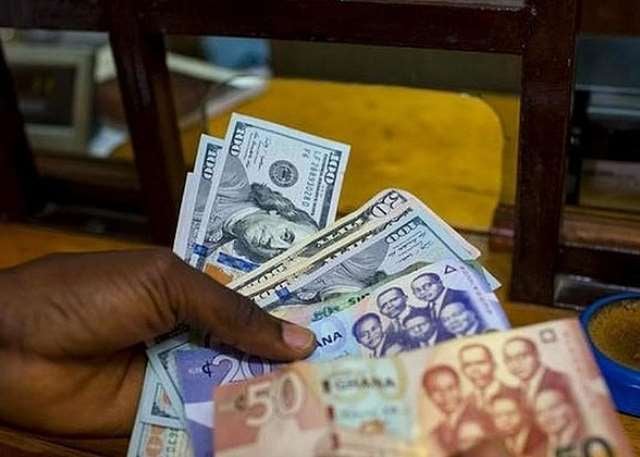The Ghanaian Cedi Demonstrates Stability Against Major Currencies
The Ghanaian cedi has exhibited commendable stability against major international currencies, particularly the US dollar, as of June 21, 2025. According to Cedirates.com, a reliable source for currency information in Ghana, the cedi averaged GHS10.38 per dollar for buying and GHS11.08 per dollar for selling. Forex bureaus, which cater to individual currency exchange needs, offered slightly different rates, with a buying rate of GHS11.90 per dollar and a selling rate of GHS12.20 per dollar. This marginal difference between the average rates and forex bureau rates is typical, reflecting the varied operational costs and profit margins within the currency exchange market. The cedi’s relative stability against the dollar signifies a positive trend in the Ghanaian economy, potentially indicating improved macroeconomic factors and investor confidence.
Interbank Market and Currency Exchange Platforms Offer Competitive Rates
On the interbank market, where financial institutions trade currencies in larger volumes, the cedi demonstrated even greater stability. The buying rate stood at GHS10.29 per dollar, while the selling rate was GHS10.31. This narrower spread between buying and selling rates in the interbank market is characteristic of wholesale currency trading. Furthermore, digital money transfer platforms like LemFi and Hurupay offered competitive rates for remittances from the US and the UK to Ghana, averaging around GHS10.25 to GHS10.30 per dollar. These platforms provide an alternative avenue for currency exchange, often with lower fees and more convenient access compared to traditional methods. Their competitive rates contribute to a more dynamic and accessible currency exchange landscape in Ghana.
British Pound and Euro Exchange Rates Remain Consistent
Against the British pound, the cedi maintained an average exchange rate of GHS13.82 for buying and GHS14.66 for selling. This reflects a relatively stable relationship between the two currencies. On the interbank market, the pound’s selling rate was GHS13.88, closely aligned with the average market rate. Similarly, the euro traded at an average of GHS11.86 for buying and GHS12.64 for selling. The interbank selling rate for the euro was GHS11.88. The consistent performance of the cedi against both the pound and the euro indicates broader stability in the Ghanaian currency market and its resilience to external fluctuations.
Money Transfer Platforms Provide Varied Rates for Pound and Euro Transactions
Money transfer platforms provided a range of exchange rates for pound and euro transactions. For pound transfers, LemFi offered a rate of GHS13.76, while Afriex provided a higher rate of GHS16.20. This difference likely reflects variations in their operational models, fees, and target markets. For euro transfers, Afriex offered GHS13.85 per euro, while LemFi provided a lower rate of GHS11.77 per euro. These variations offer consumers a choice based on their specific needs and preferences, further enhancing the competitiveness of the currency exchange market.
Digital Subscription Payments Incur Standard Exchange Rates
For digital subscriptions like Netflix, Spotify, and Apple Music, payments using Visa and Mastercard incurred a standard exchange rate of GHS11.07 per dollar. This standardized rate simplifies international transactions for digital services and provides clarity for consumers. The consistency of this rate contributes to a predictable and user-friendly experience for those accessing global digital platforms.
Overall Cedi Performance Reflects Positive Economic Indicators
In summary, the Ghanaian cedi demonstrated stability against major international currencies as of June 21, 2025. The average exchange rates, alongside the interbank market rates and those offered by money transfer platforms, paint a picture of a relatively stable currency market. This stability bodes well for the Ghanaian economy, suggesting positive economic indicators and potentially increased investor confidence. The variety of exchange rates offered by different platforms provides consumers with options and promotes competition within the currency exchange market, ultimately benefiting the Ghanaian economy. The cedi’s performance against the dollar, pound, and euro suggests a robust and resilient currency, capable of weathering external economic pressures and maintaining its value in the international market.


